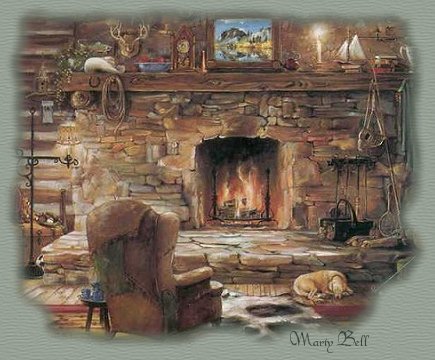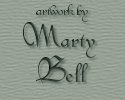

Licking
Valley Register
Covington,
Kentucky
Saturday,
January 18, 1845
Volume
IV, Number 26.
Printed
and Published By
R. C. Langdon & W. C. Munger
Devoted
to General Intelligence, Politics, Morality, Literature,
Education, the
Arts and Sciences, Agriculture,
Commerce, and Advertising.
TERMS: Weekly
on a Double Medium sheet, $2.00.
Fifty cents will be added to each subscription, when
not paid within the year.
Single numbers in wrappers 61/4 cents.
Advertisements, of 16 lines, or less, will be charged
$1.00 for the first three, and
25 centsw for each
subsequent insertion. Longer ones in proportion.
25 per cent. discount, paper included, made to yearly
advertisers.
The number of insertions must be marked on the advertisement
or it will be
continued until ordered
out, and charged
accordingly.
Persons wishing to discontinue the paper, must settle
all arrears before it
can be done,
unless at the
option of the Publishers.

TOBACCO
CANDY -- This article, said to be so vastly superior
to the most celebrated of the day, is now made in
North Carolina. It is made from the boiled extract
of tobacco stems. It is very dark in color of course
of a bitter sweet taste, inferior in point of pleasantness
to hoarhound. We were not before aware that tobacco,
had so much sacchharine about it; this candy however,
exhibits in a very high degree. Tobacco possesses
many valuable and medicinal qualities, and this method
of preparing it, may render it a very efficient and
agreeable remidical agent.

American
Women
The
women of the Revolution -- The zeal with which
the cause of liberty was embraced by the women
of American, during the war of our Revolution,
has often been mentioned with admiration and praise.
The following annecdotes will forcibly illustrate
the extent and strength of this patriotic feeling:
To
Mrs. Pinckney, the wife of Col. Charles Pinckney,
a British officer once said, "it is impossible
not to admire the firmness of the ladies of your
country.
Had your men but half their resolution, we might
give up the contest. America would be invincible."
Mrs.
Daniel Hull having obtained permission to pay a visit
to her mother on John's Island was on the point of
embarking, when an officer stepped forward and in
an authoriative manner demanded the key of her trunk. "I seek for treason," was the reply. "You may save
yourself the trouble of search thejm." said Mrs.
Hall. "You may find plenty of it at my tounge's
end."
Another
officer distinguished by his inhumanity, and constant
oppression to the unfortunate, meeting Mrs. Charles
Elliott in a garden adorned with a great variety
of flowers, asked the name of the camomile, which
appeared to flourish with peculiar luxurience - the "Rebel
Flower," she
replied. - "Why was that name given to it?" asked
the officer. "Because," rejoined the lady "it
thrives best when most trampled upon."
So much were the women attached to the
whig interest, habituated to injuries, and so resolute
in supporting them, that they would jocosely speak
of misfortunes, though at that moment suffering under
their pressure. Mrs. Sabina Elliot, having witnessed
the activity of an officer who had ordered the plundering
of her poultry houses, finding an old Muscovy druke
which had escaped the general search, still straying
about the premises, had him caught, and mounting a
servant on horseback, ordered him to follow and deliver
the bird to the officer, with her compliments, as she
concluded in the hurry of departure, it had been left
by accident.
The contrivance adopted by the ladies
to carry from the British garrison supplies to the
defenders of our country, were highly credible for
their ingenuity and of infinite utility to their friends.
The cloth of many a military coat, concealed with art,
and not infrequently made an appendage to female attire,
has escaped the vigilence of the guards expressly stationed
to prevent smuggling, and speedily converted to regimental
shape and worn triumphantly in battle. Boots have in
many cases, been relinquished by the delicate wearer
to the active partizan. I have seen a horseman's helment
concealed by a well arranged head dress, and epauletts
delivered from the folds of the simple cap of the matron.
- Feathers and cockades were much in demand, and so
cunningly hid and handsomely presented, that he could
have been no true knight who did not feel the obligation
to defend them to the last extremity.
In
the indulgence of wanton asperitics towards the patriotic
fair, the aggressors were not
unfrequently answered with keenness of repartee that
left them little cause for triumph, the haughty Truleton
vaunting his feats of gallantry to the great disparagement
of the Continental Cavalry, said to a lady at Wilmington, "I have a very earnest desire to see your far
famed hero, Col. Washington." "Your wish
Col. might be fully gratified," she promptly replied, "had
you ventured to look behind you after the battle of
Cowpens." It
was at this battle that Washington had wounded Tarleton
in the hand, which gave rise to a still more pointed
retest. Conversing with Mrs. Wiley Jones, Lol. Tarleton
observed, "you appear to think very highly of
Col. Washington, and yet I am told that he is so ignorant
a fellow that he can hardly read his won name." "It
may be the case," she readily replied, "but
no man better than yourself, Colonel, can testify,
that he
knows how to make his mark."

Educational.
Lecture
Sixth.
By
Elder Daniel M. Andrews
For the Register.
United
with the pleasures of youth, there is one of a negative
character worthy of investigation - a comparative
freedom from self-reproach. I speak now of those
whose morals are untainted, and whose general habits
are laudable. I would not hint that any young person
is free from guilt or in the sanctified eye of Heaven,
pure or acceptable. That word which cannot err, has
taught us that "there is none that worketh good,
no, not one." But youthful character may be seen,
comparatively. We may think it moral, as opposed
to the dissolute; we may think it lovely, as opposed
to the refractory; we may speak of it as pure, in
opposition to the artful and intriguing. In this
light there are, indeed, fewer persons of self-reproach
in youth than in mature life.
"The
spirit of a man will support his infirmities, but
a wounded spirit who can bear?" This precept of inspired
philosophy is adapted to all, and the question with
which it concludes implies, that the misery of self-reproach
is of the most weighing and pungent character. There
is nothing that so unveils the soul, or dissolves
it of its grandeur, and annigilates its lofty aspirations.
The arrows that drink up the soul are self-reproach;
and the wounds which it indict, like the baneful
darts of the ancients, are curable only by a medicament
that is divine. To nourish in the bosom this baneful
companion of guilt, to acquiesce with it in pleasures
which cannot please, and to marks of beauty which
we affect to admire; to feel it deride the eye, and
contradict the tongue, when eye and tongue are, to
all appearance, eloquent with praise. Ah! this is
too much for mortal man to bear. Often that which
pases for pleasure, and signs which seems to motion
delight, are frequently like those visions that mock
the eye of the mariner, they substantiate but illusions
which, upon a minute investigation, disappear into
air. So empty, and so hypocritical, often is the
pretended happiness of many who are victims of self-reproach.
It cannot be disputed that He who formed the soul,
placed within it a faculty which, like a sentinel,
sounds the alarm at the approach of the enemy.l He
who regards not this monitor, and voluntarily opens
the chambers of the soul to unlawful desire, must
purchase his indulgence, or his gain, by forfeiting
the calm joys of an approving conscience. but how
frequently is it done! How many make the sacrifice?
and when they have made it, they learn too late that
they have leaped the prohibited limit, which has
debarred them for ever from the early paradise of
their joys. They can never retrace their path, nor
regain that purity of mind which had previously marked
their youth. They have only one hope remaining -
it is the hope which eternal mercy holds out to the
desponding eye. If they emprace it, peace may again
be restored to the bosom, and self-reproach may assume
the instrument of humility and contrition. This toilsome
burthen, which so oppresses the hearts of most men,
may be traced to three causes: privileges and opportunities
wasted, duties neglected, and the commission of positive
sin.
As
we move in life it is natural to look back upon the
past; but the scene is not one on which the heart
delights to dwell. There is promiscuously a green
spot in our retropective glances; but the majority
of mortals must heave a sigh over favorable opportunities
lost, and precious favors misimproved, multitudes
must be covered with shame at the thought, that the
period when the plastic soul might be taken an impress
which would have fixed them in an honorable and useful
place, was loitered away in idleness and ignorance.
As often as the delinquency recurs, and recur it
will, we experience anew the misery of edisappointment
and remorse. In reviewing privileges neglected, and
opportunities lost, raises an inward regret, but
does not doubtless afford so much that it is painful
and pungent as the recollection of duties omitted.
It is the nature of man to grow better or worse -
he cannot be fixed - his habits of feeling and action
are hourly accumulating strength. If their bearing
is good, he is "growing in grace," but if evil, he
is becoming "hardened by the deception of sin;" of
course, that religious duty, which might once have
been fulfilled with comparative ease, becomes, in
after years, almost impracticable. -- The disposition
and ability to perform it decrease immensely as the
years of supineness and neglect increase. This fault
is felt in many a beast that reviews its early being
with a melancholy self-reproach for having neglected
duties, which have lost none of their claims by long
omission. I have seen many a man whose confessions
on this point have almost paralyzed his frame, and
spoke of the stormy conflict within. I have heard
him sigh out his regret, and speak of such omissions
with a melancholy tune, which pointed prophetically
of the hopelessness of his condition. But if with
misimproved privileges, and neglected duties, he
have spent a life of dissipation, there is annexed
to the lead, already too oppressive, an incumbent
load of anguish which weighs down the soul, and makes
it all times almost wish that vitality might cease.
- Oh the feelings of regret! how painful, even in
this world; and if these panges be but the beginning
of what shall be increased and perpetuated in another
and eternal world, what heart, thus pained with guilt,
can be indifferent to the calls of that Redeemer
who came into the world to save the chief of sinners,
and wash away the foulest stains! Although they were
as crimson; they shall be washed and made white in
the blood of the Lamb.

From
Tyros' Casket
Bustles.
We
laugh when we look at the belles of ancient days,
and as we gaze upon the bend-dress running up steeple
high, like a sun-flower gone to seed, or a tthe enormous
hoop that renders them unapproachable, we are disposed
to say, how rediculous! What fools they must have
been! But stop a bit, just direct your eyes from
these pictures of ages gone by, and take a squint
at a modern fashionable dressed lady. See the variegated
colors, which chameleon-like change and glitter at
every step; the waist revalling a wasp in dimensions,
and a look at which makes you breathe with difficulty.
The humbling, rolling walk, and shuffle consequent
upon tight lacing: the little sun shade which puts
you in mind of a six penny hammered out, and stuck
on the eye of a rye straw, or a cookee on the end
of a fork, which is used to keep the light of heaven
out of her pretty face; and at last though not least,
the modern Bustles the invention of the nineteenth
century, the name of fashion, the artificial protuberance
that makes Camels, Dromedaries, and hump-backs of
forms cast in the moulds of human perfection, and
puts one in mind of a beanpole with a great pumpkin
fastened to it a pedlar with a huge pack on his back,
a squaw with a papoose, or indeed anything else unnatural
in shape or disgusting to the sight, and then laugh
at follies of by gone days if you can. This saddle,
on which the Goddess of fashion rider triumphant
is now considered the perfection of grace; fullness
of form and beauty of dress. Can anything be more
ridiculous? How true is it that "New customs,
though they be ever so ridiculous, nay, unwomanly,
yet are followed." The bustle reigns now supreme.
What will next spring up and usurp its place, no
toungue can tell, though we defy it to be more unsightly,
or more outrageous, come It in what questionable
shape it may. ~Smike, Jr.

Continued on Page 2



Problems or bad links should be reported to the webmaster.
NOTE: These records have been transcribed from several different sources, either by us or by other researchers and provided as a starting point to assist you in your research; we've verified as many as we could, but be aware that there may be errors (either mis-spellings on the original records, almost illegible writing on the records, and/or typing errors on my part), so make sure to double check them prior to assuming they're "the gospel truth". We will never deliberately include erroneous information in any part of this site.
These records have not been copied by either of this site's coordinators from
other sites, as has been implied by some. Sources have included records from
the E. E. Barton research files, military records, newspapers, microfilm and/or
compiled lists that were provided by family members and other researchers.
The majority of the additions to the marriage index pages on 17 and 30 Jun
2007 were transcribed from FHC microfilm #973027.
If you have records that you'd like to see added to this site,
please contact either Sherri or Suzanne and
we'll be glad to add them to this collection.
©Copyright 2005-2020 by Pendleton County Genealogy
Project All files on this website are copyrighted by their
submitter and creator. They may be linked to, but may not be
reproduced on another website or in any other form, without specific
permission of the submitter, owner, publisher and this site moderator.
Although public records are as such not copyrightable, the manner
in which they are presented, including the notes, comments, etc.
are. The information on this site is provided free of charge,
by volunteers, for your personal use
only.


